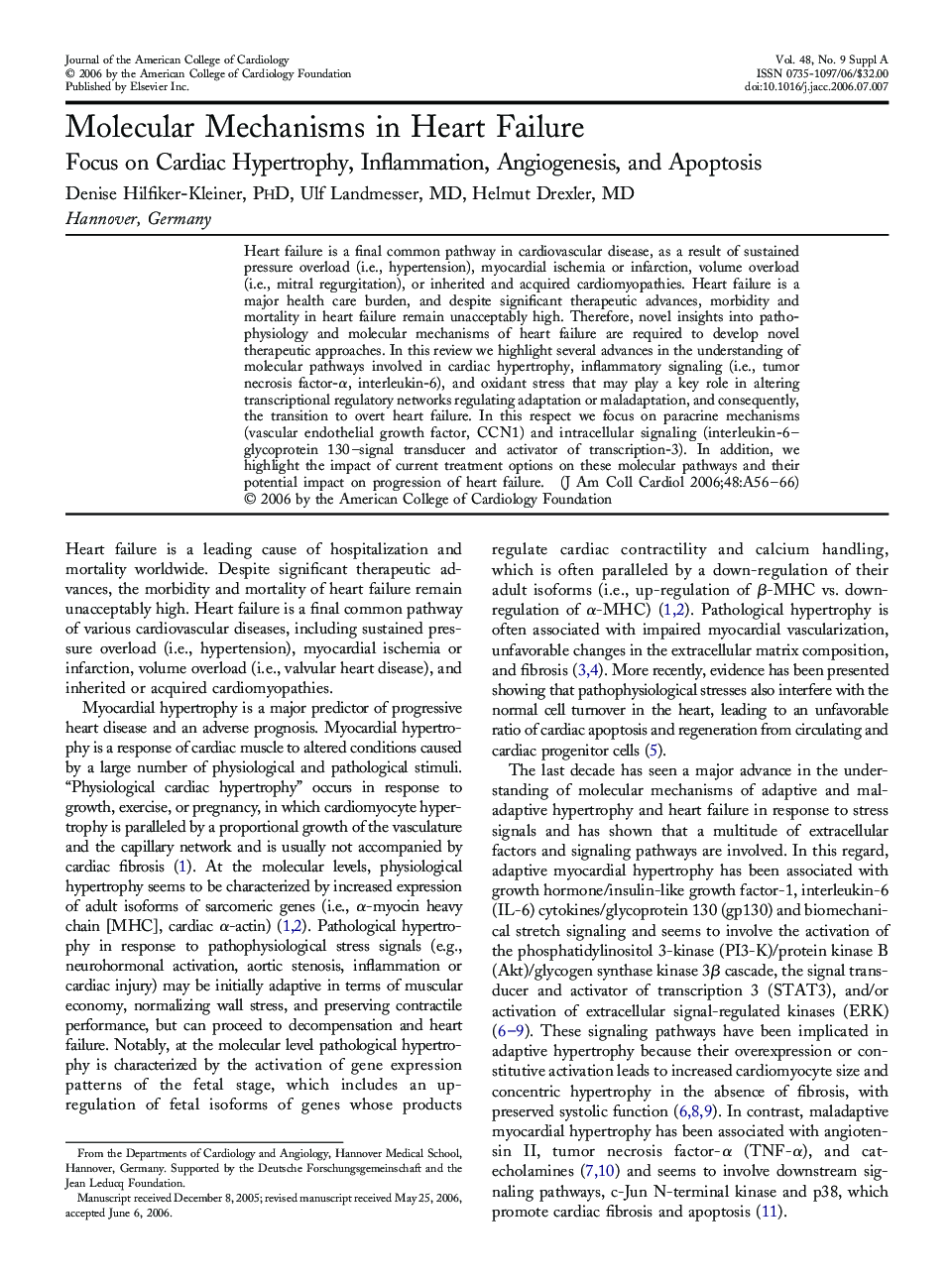| Article ID | Journal | Published Year | Pages | File Type |
|---|---|---|---|---|
| 2953856 | Journal of the American College of Cardiology | 2006 | 11 Pages |
Heart failure is a final common pathway in cardiovascular disease, as a result of sustained pressure overload (i.e., hypertension), myocardial ischemia or infarction, volume overload (i.e., mitral regurgitation), or inherited and acquired cardiomyopathies. Heart failure is a major health care burden, and despite significant therapeutic advances, morbidity and mortality in heart failure remain unacceptably high. Therefore, novel insights into pathophysiology and molecular mechanisms of heart failure are required to develop novel therapeutic approaches. In this review we highlight several advances in the understanding of molecular pathways involved in cardiac hypertrophy, inflammatory signaling (i.e., tumor necrosis factor-α, interleukin-6), and oxidant stress that may play a key role in altering transcriptional regulatory networks regulating adaptation or maladaptation, and consequently, the transition to overt heart failure. In this respect we focus on paracrine mechanisms (vascular endothelial growth factor, CCN1) and intracellular signaling (interleukin-6–glycoprotein 130–signal transducer and activator of transcription-3). In addition, we highlight the impact of current treatment options on these molecular pathways and their potential impact on progression of heart failure.
